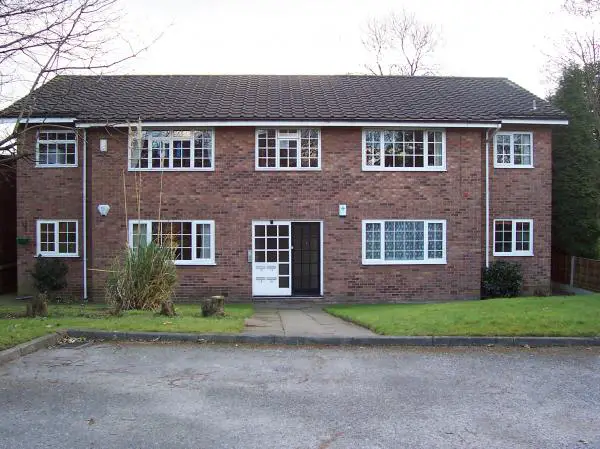Investing in property is a great way to create a new income stream. For those employed by others it can be a shock to find out you have to submit tax returns and let the government know how much you’re earning, but if you didn’t submit a tax return how would they find out?
HMRC has several methods for tracking down landlords who have not declared their rental income. They can check land registry lists and identify those who have paid stamp duty land tax. They can also check the electoral register to determine who is living at an address, and use data to track rental income.
If someone is found to be in debt to the HMRC, they could face penalties or prosecution. There is an amnesty for landlords who pay back-tax and interest owed, with penalties still applied.
HMRC also offers assistance to landlords in tracking their rental income, so they can avoid getting caught out.
When I first started investing in property I was in full-time employment, so I didn’t have an accountant to go to for help.
I naively didn’t realise you had to submit a tax return for the rental income that you received. This went on for a few years until I realised my mistake.
Fortunately, I didn’t have a lot of properties, my accountant was able to back date it and I didn’t have any fines to pay. I can totally understand how someone could find themselves in this situation though.
This was my first property, it’s a 2-bedroom apartment. I lived here for 5 years before I rented the property out. I had absolutely no idea what I was doing, but I muddled through!

What is the HMRC?
HM Revenue & Customs (HMRC) is the UK’s tax authority, and they are responsible for making sure people are paying their taxes properly.
It is important for landlords to know about HMRC, as they can track down those who are not declaring rental income through a variety of methods.
Not only do deposits need to be placed in authorised deposit schemes, but stamp duty paid on property purchases can also lead to investigations.
It is best for landlords to come forward if they have unreported income before the HMRC catch up with them, as penalties may be imposed if an investigation takes place and the landlord has not been compliant.
What is undeclared rental income?
Undeclared rental income is income that has been earned from the renting of a property but has not been reported to HMRC.
It is important to declare any rental income to ensure you are paying the correct amount of tax and avoiding any potential repercussions from the HMRC.
For companies or trusts renting out residential or commercial properties, the scheme does not apply and they should contact HMRC for advice on how to proceed.
Those unsure can use an HMRC questionnaire designed specifically for this purpose in order to determine whether the Let Property Campaign applies.
What is the Let Property Campaign?
The Let Property Campaign offers a way for residential landlords who have failed to declare rental income to disclose this information, potentially leading to better terms in settling their bill than if they were investigated.
It provides the best possible terms for individuals who come forward and gives them 90 days to calculate and pay what they owe.
Through this campaign, HMRC can recover tax from people who have not disclosed rental income over a certain period of time – but this only applies to landlords; companies, trusts or individuals who let out a shop, garage or lock up are not included in this campaign.
How does HMRC know about undeclared rental income?
HMRC is taking a proactive approach in tracking down landlords who are not declaring rental income. By using a variety of methods, such as agents, stamp duty and the electoral register, HMRC is able to identify potential undeclared income.
To avoid penalties and legal action from HMRC, landlords should take the initiative and contact HMRC before an investigation has started.
Furthermore, HMRC has its own database of landlords which they have gathered from various sources including by using computer programmes such as “Connect” to identify potentially tax-free rental income.
The Let Property Campaign is still ongoing with more landlords being contacted each day – those who have not declared any rental income should be aware that they may be on this list.
As such, it’s important for them to take steps now to ensure they do not get caught out by HMRC’s investigations into undeclared rental incomes.

What are the consequences of not declaring rental income to HMRC?
If you find yourself in a situation where you’ve not declared rental income there are several possible outcomes:
1. Penalty of up to 100% of the tax due
If a landlord fails to declare their rental income to HMRC, they could face substantial penalties. These penalties can range from 10-30% of the tax due depending on the circumstances; if HMRC believe that the failure to disclose was deliberate, the penalties can be increased up to 20-100%.
Additionally, HMRC may make an enquiry for up to 20 years if they believe there is a loss of tax.
In order to avoid these consequences, it is important that landlords inform HMRC about their rental property income and pay any owed taxes within 90 days.
If a landlord fails to disclose rental income to HMRC, they may face penalties, including interest.
Prompt disclosure of undeclared rental income is favoured by HMRC and tends to result in a much lower penalty percentage.
If an investigation is launched instead, then any potential penalty will be significantly higher than if disclosure had been made voluntarily.
2. Prosecution and possible imprisonment
The consequences of not declaring rental income to HMRC can be severe. Landlords who fail to report their rental income may face hefty fines, back taxes, and in some cases criminal prosecution.
Additionally, they may be required to pay interest and late-payment fees on any taxes owed from previous years. If landlords are found guilty of tax evasion after an HMRC investigation or audit, they could also be subject to jail time for up to seven years or a hefty fine on top of the existing penalty amounts.
3. Loss of tax reliefs
If a person does not declare rental income to HMRC, they may have to pay taxes on profits from other sources of income that they would have otherwise been able to use.
This could be especially costly if the person had made a loss on their rental property, and were unable to carry the loss forward and offset it against future profits.
Additionally, if the person does not use the property allowance or declare all rental income, they will face taxes on their full amount of profits. Ultimately, this can lead to financial losses for those who do not declare their rental income properly.
4. Loss of personal allowances
The taxman may also impose back taxes on any unpaid amounts plus interest and/or penalties based on how long the undeclared income was left out of the declaration.
It is also possible that any losses from previous years cannot be carried forward against future profits from rental properties if the income was not declared in the first place.
It is essential for anyone who earns rental income to ensure that it is accurately declared to HMRC in order to avoid these consequences.
5. Loss of capital gains tax exemptions
Individuals may be eligible for various capital gains tax exemptions, depending on their situation. These exemptions can be lost if individuals fail to declare their rental income on their tax returns.
HMRC can determine undeclared rental income when they review an individual’s tax return or through records such as bank statements, property deed transfers and other sources of information.
If HMRC finds that an individual has not declared their rental income, they may be subject to capital gains tax and penalties.
In order to avoid getting caught out, it is important that individuals declare all applicable rental income accurately on their yearly tax returns.
6. Loss of entitlement to certain tax credits
An individual may also be unable to claim any deductions or losses for actual expenses, as these must be declared when filing a tax return.
Furthermore, if they wish to use the property allowance, they must file a return by 31 January in the second year after the end of the relevant tax year.
Not making this return on time may result in being taxed and penalised according to normal procedures.
HMRC has information available on GOV.UK that might help you understand how best to file their taxes so as not to get caught out by declaring undeclared rental income.
The HMRC property income allowance is a flat £1,000 tax-free allowance that you can use against your rental income.
You can’t claim it in conjunction with any other rental income allowances, so you should consider whether it’s the most tax-efficient relief you can claim.
7. Loss of entitlement to certain benefits
The consequences of not declaring rental income to HMRC can be costly for individuals. Not only may they lose out on deductions that can be applied against other sources of income, such as dividends or pension payments, but they may also have to pay back taxes in future years if their rental profits exceed their losses.
Additionally, those who have had a loss in the past may not be able to roll this forward against future rental income.
In Conclusion
Paying tax is a necessary evil, and if you’re considering how to get away with not declaring it take my advice and forget about it. Many before you have tried and failed, HMRC has years of practice at finding out about undisclosed income and unpaid taxes.
If you haven’t declared your rental income to HMRC then it’s important to do so as soon as possible.
Speak to your accountant to advise you of the best way forward. If you don’t have an accountant yet then we highly recommend our accountant – Chris from UHY. He’ll be happy to have an initial chat with you to set you on the right path.
- BoE Remains at 5.25%: Property Expert Outlines What This Means for Investors - November 6, 2023
- Energy Performance Certificate (EPC) Targets Scrapped by Sunak - September 26, 2023
- Your Guide To Home Improvements That Yield Returns Better Than Investments - August 21, 2023



